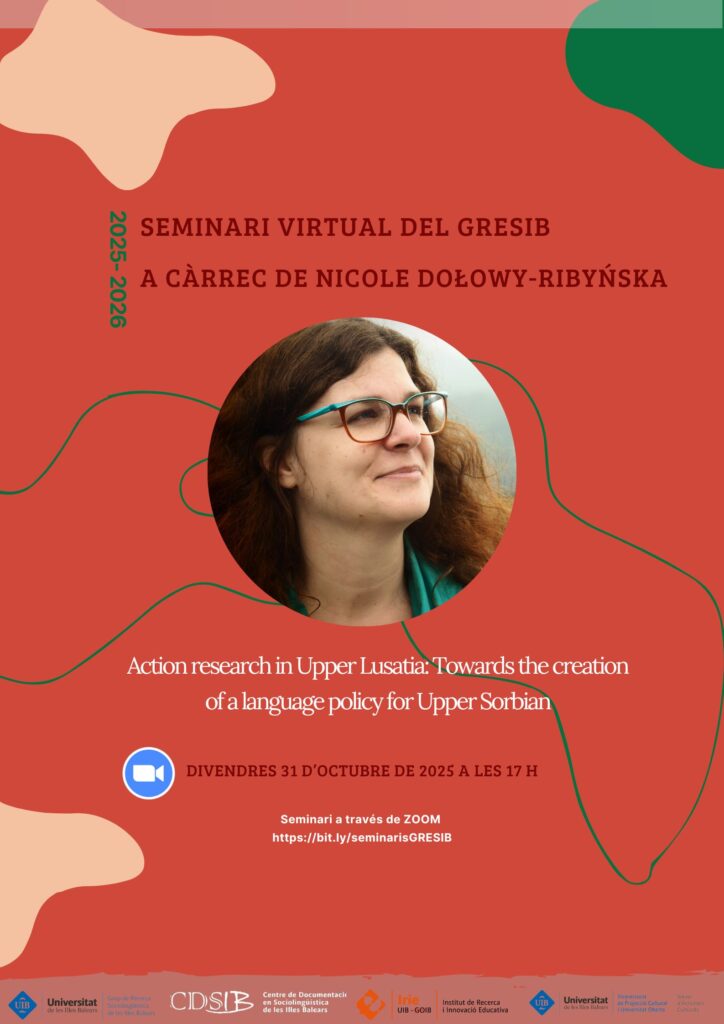
Action research in Upper Lusatia: Towards the creation of a language policy for Upper Sorbian
Upper Sorbian is a Slavic minority language spoken in Lusatia in eastern Germany. It has been protected by the state since at least the end of the Second World War. During the GDR era (1949–1990), the Sorbian minority gained certain rights aimed at preserving their culture, identity, and language. Various institutions were established for this purpose, including media outlets, an education system, a theatre, and a scientific institute. Domowina, the umbrella organization representing Sorbian associations in Lusatia, served as the voice of the Sorbian community. After the political transition in 1990, the Sorbs emerged as a highly institutionalized minority, maintaining much of this infrastructure to the present day. However, this legacy has proven to be both a strength and a limitation, as it has entrenched a passive rather than active approach to language policy and planning.
Meanwhile, the situation in Upper Lusatia has significantly deteriorated over the past few decades. While intergenerational language transmission continues—albeit to a limited extent—in the Catholic region, the Protestant region has experienced extensive linguistic assimilation. For Upper Sorbian to survive, urgent revitalization efforts are necessary, along with the implementation of a comprehensive language policy that encompasses all areas of life.
The ZARI project—Network for the Sorbian Language and Regional Identity—was developed in response to this need. Its goals are to revitalize Upper Sorbian, particularly in areas where the language has lost speakers, to empower the community, and to contribute to the development of language policy and planning in Upper Lusatia.
In this presentation, I will outline the action plan for 2025–2026, which Cordula Ratajczak and I developed based on sociolinguistic research, including participant observation, language-biographical interviews, and discussions with language motivators involved in the ZARI project. This action research aimed to identify the community’s most pressing needs and propose possible solutions, drawing on existing initiatives and successful practices from other linguistic minorities in Europe. I will also address the challenges faced by a highly institutionalized minority in implementing a new, more dynamic form of language policy.
Accés al seminari: https://bit.ly/seminarisGRESIB

